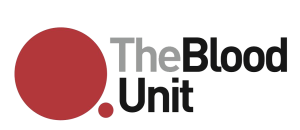 There has been a lot of excitement about CAR T-cell therapies in leukaemia and lymphoma, especially here in Melbourne, and at Cabrini where our Haematologists can access this powerful treatment through our close alliance with Peter Mac which is the approved site for delivery of standard-of-care CAR T-cells in Victoria.
There has been a lot of excitement about CAR T-cell therapies in leukaemia and lymphoma, especially here in Melbourne, and at Cabrini where our Haematologists can access this powerful treatment through our close alliance with Peter Mac which is the approved site for delivery of standard-of-care CAR T-cells in Victoria.
Most current CAR T-cell therapies use the CD19 target on lymphoma and leukaemia cells, which provides targeted and specific killing of these cells only. Myeloma patients can be encouraged to learn that a similar highly specific target has been identified on myeloma cells, called B-cell maturation antigen (BCMA). BCMA is only found on plasma cells (which when they are cancerous are myeloma cells) and not on other cells, so this is an ideal target to use.
Myeloma CAR T-cells are currently under investigation in numerous trials including here in Melbourne. Suitable Cabrini patients with relapsed or refractory myeloma may be eligible for this study, and we have an excellent referral process to allow assessment for eligibility and recruitment.
The studies to date show an extremely high response rate even in patients with an average of 6 prior lines of therapy for their myeloma, with the EVOLVE and CARTITUDE studies showing 92-100% response rates. Whilst this is exciting, we must also remember that CAR T-cell treatments are associated with adverse events such as cytokine release syndrome (CRS) and a neurotoxicity syndrome called ICANS.
Whilst the response rates are impressive, a more elusive ‘holy grail’ is achieving a prolonged duration of response. Relapses of myeloma still occur reasonably often after CAR T-cell therapies, often because the cancer cell mutates to no longer express the target on its surface. The scientific community is working on brilliant work-arounds to combat this ‘escape strategy’ that myeloma cells have developed. Much more work needs to be done to improve and expand on the targets for CAR T-cells, to engineer these cells to not allow ‘escape’ of the cancer from immune attack, to reduce the toxicity of these treatments and to improve our treatment of those toxicities. Finally the medical community continues to work with health officials to advocate for patients, and to find ways in which access to these highly expensive treatments can be equitably and sensibly delivered.
Your The Blood Unit Haematologist will welcome any questions you have on these therapies, and whether these, or other novel strategies may be suitable for you.
Dr Kirsten Herbert
22nd October 2020
